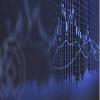Edit Your Comment
Market Makers and ECN: The Points of Difference
Nov 07, 2016 at 08:01
Jul 28, 2016 부터 멤버
게시물7
As with any other domain where using techno-jargon is the norm, the world of forex trading is full of terminologies and coinages. A couple of the most common terms which are used here are “dealers” and “brokers”. Brokers are the people or agencies who connect your trade to the place where the action takes place - the market or the network of liquidity providers. There is no trading without a broker. There are mostly two kinds of brokers, they are: Market Makers or brokers with a Dealing Desk; and non-market makers/No Dealing Desk Brokers, such as ECN/STP trading platforms. Below the difference between the two are described in painstaking detail. Let’s see the way it works:
A Market Maker or Dealing Desk Broker
Market makers are those brokers that place orders and execute them, thereby acting on behalf of the client. They notably act as counter-parties to the client where executing a trade or taking a position is concerned. Market makers are those brokers who provide a two-way pricing system to the customers. In two particular instances, the prices are mentioned on a fixed basis, which really means that they do not display any up-down movement or change in position and value, throughout the day. A few markets use a dynamic spread system (the difference between the initial capital and ‘stop loss’ or ‘take profit’ levels). This means that the prices get altered as the liquidity fluctuates for a few pairs. The market maker brokerage interacts with other market making/dealing desk platforms to manage up their international forex trade positions. A striking feature of market makers is that almost all individual market makers put forward a different price for a particular currency pair. A huge majority of the liquidity network is made up of Banks. There are investment banks, FCMs and financial instruments. These brokers are usually compensated by their sheer ability and expertise in managing the risks on a global scale. A few stuff included in this are: spread revenue, netting revenue, and revenue on conversion.
ECN or No-Dealing-Desks
Unlike Market Makers, ECN or Electronic Communication Networks are devoid of dealing desks, and don’t really trade against their client. This is since they are not required to do so. What they do instead is to connect their client to the actual liquidity market in the real time. This is how it works: Every single dealer sends a price to the ECN and a volume of trade which signifies that a quote is "good", following which the ECN distributes that price to the customer. The ECN is not concerned with trade execution at all. Rather, it confines itself only to the transmission of the order to the dealing desk from which the prices were determined. In this system, the spreads are always determined by the difference between the greatest bid and the best offer at a particular point in time on the ECN. In the ECN mode of working, the brokerage platform makes money from a commission or rebate charged on the amount of profit.
In short, these are the differences which exist between market makers/ dealing-desks and no-dealing-desks or ECN/STP.
A Market Maker or Dealing Desk Broker
Market makers are those brokers that place orders and execute them, thereby acting on behalf of the client. They notably act as counter-parties to the client where executing a trade or taking a position is concerned. Market makers are those brokers who provide a two-way pricing system to the customers. In two particular instances, the prices are mentioned on a fixed basis, which really means that they do not display any up-down movement or change in position and value, throughout the day. A few markets use a dynamic spread system (the difference between the initial capital and ‘stop loss’ or ‘take profit’ levels). This means that the prices get altered as the liquidity fluctuates for a few pairs. The market maker brokerage interacts with other market making/dealing desk platforms to manage up their international forex trade positions. A striking feature of market makers is that almost all individual market makers put forward a different price for a particular currency pair. A huge majority of the liquidity network is made up of Banks. There are investment banks, FCMs and financial instruments. These brokers are usually compensated by their sheer ability and expertise in managing the risks on a global scale. A few stuff included in this are: spread revenue, netting revenue, and revenue on conversion.
ECN or No-Dealing-Desks
Unlike Market Makers, ECN or Electronic Communication Networks are devoid of dealing desks, and don’t really trade against their client. This is since they are not required to do so. What they do instead is to connect their client to the actual liquidity market in the real time. This is how it works: Every single dealer sends a price to the ECN and a volume of trade which signifies that a quote is "good", following which the ECN distributes that price to the customer. The ECN is not concerned with trade execution at all. Rather, it confines itself only to the transmission of the order to the dealing desk from which the prices were determined. In this system, the spreads are always determined by the difference between the greatest bid and the best offer at a particular point in time on the ECN. In the ECN mode of working, the brokerage platform makes money from a commission or rebate charged on the amount of profit.
In short, these are the differences which exist between market makers/ dealing-desks and no-dealing-desks or ECN/STP.
Nov 09, 2016 at 07:11
Feb 12, 2016 부터 멤버
게시물394
Great work sandysr. From my point of view the ECN is always the right decision. Their work is more clear and you know that YOUR strategy will lead you to YOUR success. Trading on behalf of someone sounds not right at all.
Accept the loss as experience
Sep 15, 2016 부터 멤버
게시물24
Nov 09, 2016 at 07:45
Sep 15, 2016 부터 멤버
게시물24
sandysr posted:
As with any other domain where using techno-jargon is the norm, the world of forex trading is full of terminologies and coinages. A couple of the most common terms which are used here are “dealers” and “brokers”. Brokers are the people or agencies who connect your trade to the place where the action takes place - the market or the network of liquidity providers. There is no trading without a broker. There are mostly two kinds of brokers, they are: Market Makers or brokers with a Dealing Desk; and non-market makers/No Dealing Desk Brokers, such as ECN/STP trading platforms. Below the difference between the two are described in painstaking detail. Let’s see the way it works:
A Market Maker or Dealing Desk Broker
Market makers are those brokers that place orders and execute them, thereby acting on behalf of the client. They notably act as counter-parties to the client where executing a trade or taking a position is concerned. Market makers are those brokers who provide a two-way pricing system to the customers. In two particular instances, the prices are mentioned on a fixed basis, which really means that they do not display any up-down movement or change in position and value, throughout the day. A few markets use a dynamic spread system (the difference between the initial capital and ‘stop loss’ or ‘take profit’ levels). This means that the prices get altered as the liquidity fluctuates for a few pairs. The market maker brokerage interacts with other market making/dealing desk platforms to manage up their international forex trade positions. A striking feature of market makers is that almost all individual market makers put forward a different price for a particular currency pair. A huge majority of the liquidity network is made up of Banks. There are investment banks, FCMs and financial instruments. These brokers are usually compensated by their sheer ability and expertise in managing the risks on a global scale. A few stuff included in this are: spread revenue, netting revenue, and revenue on conversion.
ECN or No-Dealing-Desks
Unlike Market Makers, ECN or Electronic Communication Networks are devoid of dealing desks, and don’t really trade against their client. This is since they are not required to do so. What they do instead is to connect their client to the actual liquidity market in the real time. This is how it works: Every single dealer sends a price to the ECN and a volume of trade which signifies that a quote is "good", following which the ECN distributes that price to the customer. The ECN is not concerned with trade execution at all. Rather, it confines itself only to the transmission of the order to the dealing desk from which the prices were determined. In this system, the spreads are always determined by the difference between the greatest bid and the best offer at a particular point in time on the ECN. In the ECN mode of working, the brokerage platform makes money from a commission or rebate charged on the amount of profit.
In short, these are the differences which exist between market makers/ dealing-desks and no-dealing-desks or ECN/STP.
I agree. This post will give a better understanding about market makers and ECN brokers.
In my opinion market makers or the dealing desk brokers are the one who earns money from the bid/ask difference as well as when the client looses a trade as they trade against their clients by hedging
whereas an ECN broker doesn’t have any dealing desk and are not making money from bid/ask. They charge a minimal commission for arranging a marketplace for all the parties who then interact within the system and get the best offers for the trades available at that time.
Nov 13, 2015 부터 멤버
게시물35
Nov 22, 2016 at 16:09
Nov 13, 2015 부터 멤버
게시물35
Hi guys, this is a great topic to discuss!
To me the comparison done by sandysr above is a bit confusing as it mixes up different terms. For example, the revenue models for the market makers he presents are quite applicable to banks which are actually also market makers. But for brokers making the market - the main source of income is the loss of the clients. I don't think that ECN corresponds to a brokerage model, it is just the place where orders are submitted. A market maker can also use an ECN so hybrid models exist as well.
I would like to hear a bit more input from different people - how the terms are understood by the traders.
To me the comparison done by sandysr above is a bit confusing as it mixes up different terms. For example, the revenue models for the market makers he presents are quite applicable to banks which are actually also market makers. But for brokers making the market - the main source of income is the loss of the clients. I don't think that ECN corresponds to a brokerage model, it is just the place where orders are submitted. A market maker can also use an ECN so hybrid models exist as well.
I would like to hear a bit more input from different people - how the terms are understood by the traders.
A knight's tale!
Nov 28, 2016 at 15:24
Mar 26, 2015 부터 멤버
게시물34
Very good discussion! From what I read about the ECNs, the biggest issue there is the anonymity - so you never know who runs it and who takes part in it. I am not sure if a broker is offering ECN this makes much of a positive difference. Maybe ECN is not the main thing we need to focus on? I've also seen many brokers offering ECN and standard pricing. So it's quite mixed.
Once a trader, always a trader!

*상업적 사용 및 스팸은 허용되지 않으며 계정이 해지될 수 있습니다.
팁: 이미지/유튜브 URL을 게시하면 게시물에 자동으로 삽입됩니다!
팁: @기호를 입력하여 이 토론에 참여하는 사용자 이름을 자동으로 완성합니다.














